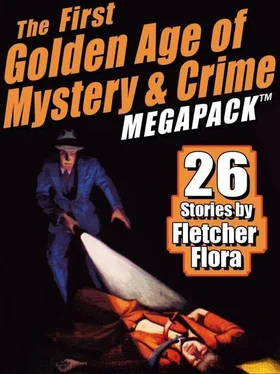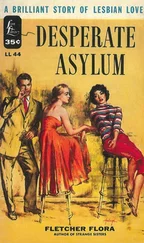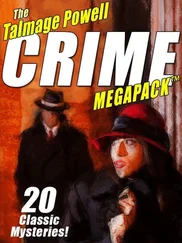“As odd,” I said, “as your own presence at those unhappy events.”
She laughed instantly in some strange, contained delight. Opening her eyes she sat up. Her laughter was more motion than sound, hardly louder than a whisper. In her voice, when she spoke, was a kind of mock wonder.
“Darling,” she said, “I do believe we suspect each other.”
“Impossible. One of us suspects; the other knows.”
“That’s so, isn’t it? You’re very logical, darling.”
“Logical enough to know that the quotient increases as the divisor decreases.”
“Of course. That’s elementary.”
“As you say, elementary. Even a child could see it. Even you.”
“Thank you. I’m really quite clever at arithmetic when you come right down to it. I understand clearly, for instance, that this all remains purely academic, a kind of textbook exercise, until the dividend is available for division.”
“In good time. Five years will pass in five years. Meanwhile, let us enjoy our summers.”
“I’m sick of our summers. At this instant, if I weren’t on orders and rations, I might be in Rio or Mexico City or some other exciting place.”
“If you were, I’d be desolate.”
“No, you wouldn’t, darling. You’re a summer habit. We’d make arrangements.”
“I’m reassured. However, you must admit that Grandfather, for all his irritating devotion and familial despotism, is exceedingly generous with his money. He has always cheerfully supported us all, and in the style to which we’ve become accustomed. Some fair day, after the detestable county history is finished, you and I shall have what he leaves behind.”
“How can you be so certain?”
“There’s nothing deceptive about Grandfather. He’s fanatically devoted to his family, even though they neither sow nor reap. You know that.”
“For all his generosity, however, he’s a strait-laced and sensitive old moralist in his way. Suppose we did something to offend him and got cut out of the will?”
“Don’t even think of such a horrible contingency. We must take care to avoid such a thing.”
“That’s easily said, but I know you, and you know me, and we both know that either of us could be found out anytime. All I can say is, it’s a good thing Grandfather doesn’t have access to our detailed case histories this minute.”
She lay down again on the neat green grass, and I lay down beside her. The grass, lately cut, smelled sweet and good. Closing my eyes, I listened to the thousand summer sounds. Beside me, Connie’s voice was drugged with drowsy dreams.
“It isn’t remarkable when a very old man dies,” she said.
“If he has seventy million dollars and dies in the company of his two remaining heirs,” I said, “it may attract remarkable notice.”
“Nonsense. One only needs to be clever and careful.”
“I’ll think about it,” I said.
While I was thinking, June passed. In July, the first two weeks of it, it was too hot to think. Then, the third week, we began to get thunderstorms every day, and the temperature became tolerable, and it actually began to seem as if it might be almost possible to reach a decision and to accomplish something exceptional.
I must admit that I greatly admired Connie during this trying period. She never pushed; she never nagged; she never even mentioned, not once, Grandfather’s distressing longevity. She left me strictly to my lonely thoughts regarding that critical matter, and it was only now and then that I caught her looking at me with a wary watchful expression in her ancient Florentine eyes. Otherwise, we played tennis, we lay in the sun, we took walks, we drank gin and tonic, we trifled when we chose. It was, all in all, a pleasant summer, although dull in spots.
Even the rains, when they came, were rather pleasant. They broke the heat and cleared the mind and stimulated the imagination. Some days of that third July week broke bright and clear, but always in the morning the thunderheads would begin to pile up in the southwest and in the afternoon they would come boiling over with the wind roaring and the thunder crashing and great jagged bolts of lightning splitting the sky.
Connie responded intensely to these gaudy displays of elemental pyrotechnics. She would stand or sit very erect, her nostrils flaring, her eyes dilated and shining, and I could see her small alert breasts rise and fall in a cadence of contained excitement. We always watched from the front veranda of the house. Sometimes the rain blew in and wet us down. That’s where we were one afternoon when the week had nearly passed, and the rains with the week. The clouds had just rolled over, and the deluge had stopped. The sun, breaking through scattered remnants, transformed the shadowed earth to an Eden of shimmering green and gold.
“Let’s take a walk,” Connie said.
“Now?” I said.
“Yes, now.”
“We’ll get our shoes wet.”
“We’ll take our shoes off.”
She was wearing loafers on bare feet, and she kicked the loafers off and went down off the veranda and across the yard. I took oft my tennis shoes and socks and followed. She was walking swiftly, and she was around the house and past the garages and onto the path beyond them before I caught up.
She took my hand and held it tightly, as if she were trying by the pressure to transmit a message, and we walked on up the slope and over the crest and down the slope on the other side. Skirting the Happy Hunting Ground, we walked on through thicker trees and denser growth until we came to the far side of the estate where a narrow creek ran between deep banks. Ordinarily, the creek bed carried little water, but the heavy rains had drained into it from the slopes, and now it was nearly full.
We walked along the creek until we reached a place where the banks were lower and the water spread and became shallower and rushed in a rapids over worn rocks. A chain of large stepping stones had been strung across the creekbed here, but now they were submerged, and the water boiled around them. We sat down together on the trunk of a fallen tree.
“How could we do it?” I said.
“It would be easy.” She picked up my thoughts as if there had been a pause of only minutes instead of weeks in our conversation. “He’s an old man. It’s time for him to die. Who would suspect?”
“It would have to be done just so. At best, it would be a terrible risk.”
“Hardly any risk at all. I have a plan.”
“I confess that I feel a certain reluctance, quite aside from the risk, to do Grandfather in. It’s true, however, that his unreasonable tenacity incites it.”
“There would be no pain, no violence. In the end, he wouldn’t even know. He would simply die in his sleep.”
“Neat enough, if it could be arranged. How could it?”
“Surely you have thought of it a hundred times yourself, Buster. You couldn’t have helped yourself.”
“The nightcap?”
“You see? I knew you’d thought of it.”
The reference was to an old habit and a minor family ritual. The old quack who had been Grandfather’s doctor for ages had recommended years ago that he take a nightcap of bourbon and water every night upon retiring. This was supposed to calm his nerves, pep up his circulation, and act upon him generally as a salubrious tonic. Grandfather was by no means addicted to the bottle, but his nightcap became a habit entrenched, and a minor ritual, as I said, developed around it.
I don’t know what adjustments were made when I was not in the house, but when I was there I was expected at Grandfather’s bedtime to make the highball and deliver it to him in his room, where I usually found him waiting on the edge of his bed in his nightgown. I made the highball in the kitchen from 100 proof stuff that he kept tucked away in the cabinet for his private consumption.
Читать дальше












